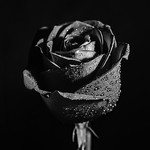
I’ve become ever more convinced with age that It’s not so much the plain fact of death that people fear as they face the downslope of their allotted years on earth. It’s not death but the nature of the dying that furrows their brows during conversations about the end of life.
At least that’s how it is for me and most every aged peer I talk to when conversations—not all of them, but many—at least touch on who’s in the hospital now, who’s going in soon, who’s getting out, and whether the getting out is to go home, go to the nursing home, or go to the morgue.
And the last of those is the least of most everyone’s worries.
The thought of death is dwarfed first by the fear of unrelieved physical pain, though modern methods and attitudes toward pain management have significantly reduced the incidence and concern that one’s end may be accompanied by acute bodily suffering.
It’s another fear that strikes the mo...
Read More










Recent Comments